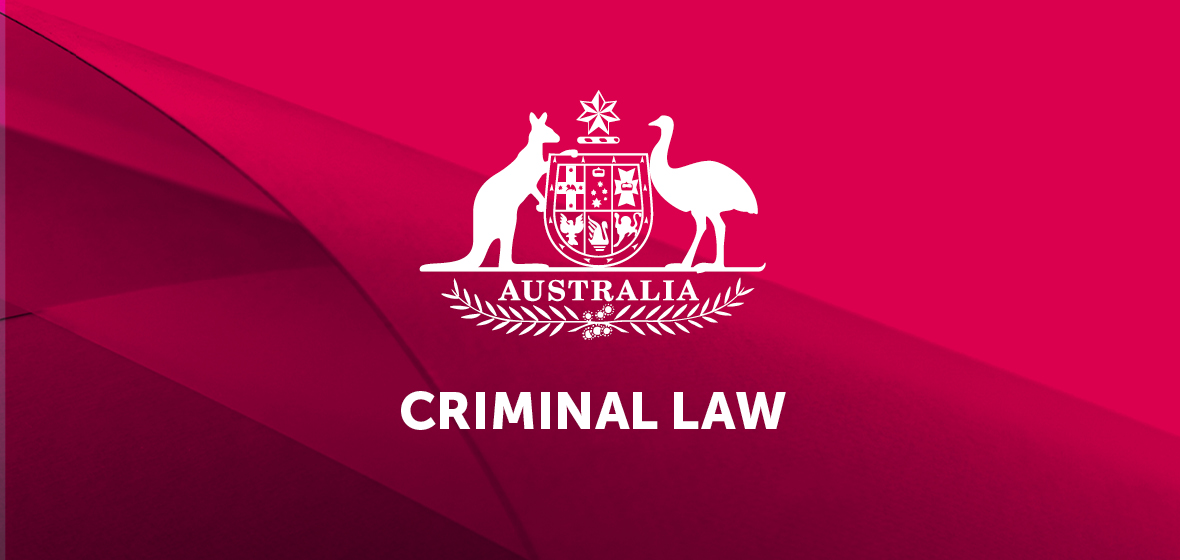Key decisions
- DPP (NSW) v Mawad [2015] NSWCCA 227
- DPP (Cth) v Gow [2015] NSWCCA 208
- R v Moore [2015] NSWSC 1263
DPP (NSW) v Mawad [2015] NSWCCA 227
Last month, after observing that the rapidly-shifting sands of bail law have caused decisions about bail to become a staple of this column, this author described the decision in Director of Public Prosecutions (NSW) v Brooks [2015] NSWCCA 190 as binding, but in need of a degree of circumspection. After LSJhad gone to print, but before it had reached you, a differently-constituted CCA gave effect to that circumspection.
Like Brooks before it, Mawad was a detention application by the Crown. The allegation was that Mawad and a co-offender had armed themselves with pistols and robbed a home improvement store of over $40,000, with the assistance of an employee who helped them gain entry. The applicant had to show cause why his continued detention was not justified.
It might be recalled that in Brooks, the Court of Criminal Appeal (‘CCA’) (Hoeben CJ at CL, Johnson and RA Hulme JJ) had said, at [22], that ‘…there is nothing particularly special or unusual in what the respondent has put before the Court. Age, lack of criminal antecedents, ties to the community and strong family support do not amount to showing cause’ (emphasis added). It was those emphasised observations, implying that something special or unusual was necessary, which was important for practitioners.
In Mawad, the court (Beech-Jones J at [42]-[43], with the explicit agreement of Gleeson JA, at [2]), distanced itself from those emphasised observations in Brooks. Beech-Jones J opined that he did not understand Brooks to have been holding that it was necessary to show ‘special or unusual circumstances’ when a bail applicant must show cause. This was said to be so because the CCA ‘has no authority to add glosses to statutory tests’ like the one in the Bail Act 2013. His Honour went on to observe that Brooks did not provide that age, lack of criminal record, ties to the community and strong family support could never amount to showing cause – only that they didn’t in that particular case.
If there is tension between the decisions of Brooks and Mawad, how is it to be resolved, especially considering that neither was really a properly argued ‘appeal’? For the time being at least, it is probably still safest to stick carefully to the statutory tests rather than fixate too closely on the cases. If an applicant must ‘show cause why his or her detention is not justified’, then, on any view, the bar is placed higher than if they do not need to satisfy that test. Doubtless, the CCA will return to this topic again (hopefully not before this publication reaches you, this time).
DPP (Cth) v Gow [2015] NSWCCA 208
In Gow, the CCA has cast doubt upon one of its own decisions, raising questions about how pleas of guilty should be taken into account when sentencing for Commonwealth offences.
Gow was found guilty at trial of importing 4kg of cocaine, constituting 2.3kg of pure cocaine (the commercial quantity being 2kg). He was sentenced to eight years imprisonment with a five year non-parole period, against which the Commonwealth DPP appealed, asserting the sentence was inadequate. In the course of that appeal, the Crown drew the court’s attention to comparative decisions, but unlike this case nearly of all those involved guilty pleas.
The law previously had been said to be that, in Commonwealth matters, the guilty plea could only be taken into account as recognition of an offender’s willingness to facilitate the course of justice, and not on the basis that the plea has saved the community the expense of a contested hearing (which is the law in State matters). It had also been said that it was unnecessary for a court sentencing in a Commonwealth matter to specify a quantified discount for that plea (again, contrary to the law in State matters).
Basten JA (at [28], with the concurrence of Hamill J at [72]) said that previous CCA decisions, including Lee v R [2012] NSWCCA 123 had incorrectly applied the High Court authority in Cameron v The Queen(2002) 209 CLR 339 in coming to those conclusions about how a guilty plea is to be used. Basten JA considered that was because the High Court in Cameron had assumed that State law applied. The result is that a court following Gow could, in a Commonwealth matter, take into account the plea of guilty in other ways, including the utilitarian benefit of a plea of guilty, and as an indication of remorse.
Because Mr Gow had not actually pleaded guilty and it arguably wasn’t necessary to decide this issue in this case, the principles set out above are obiter – but they are what the High Court would call ‘seriously considered dicta’, meaning we’re all bound to apply it. It would be a little surprising if either the CCA or the High Court were not invited to consider this issue fairly soon.
R v Moore [2015] NSWSC 1263
What does the hypothetical prosecutor ‘know’ when an application is made under the Costs in Criminal Cases Act 1967 (NSW)? That is the question which Hamill J of the Supreme Court considered in this case, and in the process, his Honour also included a useful summary of principles.
Moore was charged with being an accessory after the fact to murder. The DPP discontinued proceedings after pre-trial determinations were made excluding certain evidence, including admissions which his Honour ruled were obtained as a result of an inducement – in this case, an implied promise that ‘off the record’ admissions wouldn’t be used against him.
The Cost in Criminal Cases Act provides for a certificate to be granted to a defendant where there is a discharge or acquittal, the DPP discontinues the proceedings, or an appeal is upheld and the conviction quashed. It applies to both summary and indictable matters.
A certificate grants a defendant the right to apply for their costs to be paid by the State, although the amount actually paid is decided by the Director-General and will not necessarily be the whole costs in any given matter. As his Honour notes in summarising some of the principles (at [6]), the legislation is unusual – and it should be noted that it is only one of a number of pieces of legislation which potentially give rise to costs orders for accused persons. In determining whether to grant the certificate, the Costs in Criminal Cases Act notionally re-writes history insofar as it imputes a hypothetical prosecutor with knowledge of ‘evidence of all the relevant facts’ (including things that didn’t come out until after proceedings were underway), and then asks whether, armed with that knowledge, the hypothetical prosecutor would reasonably have instituted the proceedings.
In this matter, one question was whether that hypothetical prosecutor should be imbued with knowledge about the outcome of objections. It was conceded by the applicant, and accepted by his Honour, that the prosecutor would not know the outcome of objections to evidence, but would know of the potential of that evidence to be excluded (at [23]). But, importantly, his Honour found that the hypothetical prosecutor is ‘…not to be attributed with the ability to predict what factual findings will be made either at trial or on the voir dire, let alone to be able to predict the exercise of discretion residing in the trial judge’ (at [28]). As his Honour indicated, there may be cases where the witnesses might be so lacking in credit, or the evidence so obviously likely to be excluded (even pursuant to a discretion) that it would not have been reasonable to commence proceedings; as so often, every case turns on its facts.




